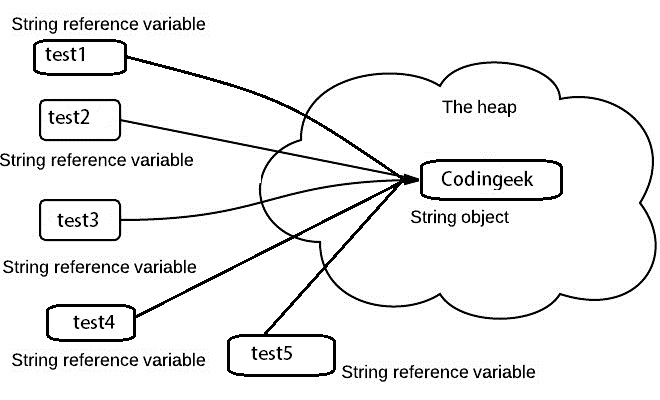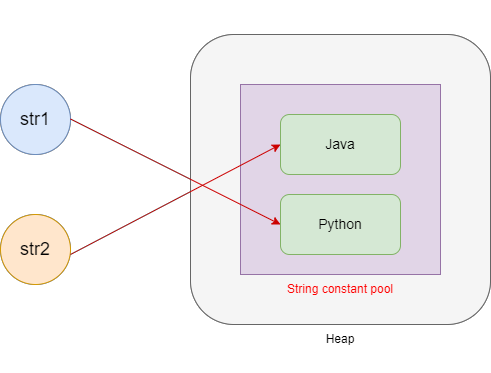Discovering the Advantages of Immutable Strings in Modern Programming Paradigms
In the world of modern-day programming standards, the idea of immutable strings stands as a foundation of robust software application development. The benefits they supply surpass plain comfort; they essentially change the means data is dealt with within applications. By taking on unalterable strings, designers can ensure enhanced information honesty, boosted thread safety and security, streamlined debugging processes, boosted safety and security steps, and effective efficiency optimization. These benefits act as a testimony to the extensive impact that embracing immutability can have on the dependability and efficiency of software program systems.
Boosted Information Honesty

By avoiding the modification of string objects, immutability gets rid of the risk of unintended changes to the data they hold. This not only improves the protection of the info but likewise boosts the dependability of the code that counts on these strings.
Immutability also supports more secure multithreading environments, as simultaneous accessibility to immutable strings does not position the danger of information corruption through simultaneous modifications. This residential or commercial property simplifies the process of handling strings in parallel programming situations.
In significance, immutability serves as a safety guard around the information kept within strings, enhancing their honesty by ensuring that once specified, their values remain the same throughout the program's execution.

Improved Thread Security
Immutable strings improve the string safety and security of programs by making certain that once a string things is produced, its value can not be modified. This home removes the danger of concurrent strings trying to change the very same string concurrently, which might lead to information corruption or inconsistent states in the program - Why are strings immutable in Java?. In a multi-threaded atmosphere, where multiple strings access and control data simultaneously, the immutability of strings supplies a level of security by assuring that the information remains unmodified throughout its lifecycle
Streamlined Debugging Processes
Provided the enhanced thread security promoted by unalterable strings, a substantial advantage develops in the realm of streamlined debugging procedures. Immutable strings, when produced, can not be modified, making it easier to map the flow of data and determine the resource of insects in a program. This immutability ensures that strings stay constant throughout the implementation of the program, reducing the chance of unforeseen changes that can cause mistakes.
When debugging with mutable strings, programmers commonly experience problems where a string's value is customized inadvertently, making it challenging to identify the root reason of a bug. Nevertheless, with immutable strings, the data stays the same, permitting designers to concentrate on assessing the actual reasoning of the code as opposed to tracking down where and when a Website string was changed improperly.
Furthermore, immutable strings simplify the debugging process by enabling simpler recreation of insects. Given that immutable strings do not alter state, designers can recreate and research insects extra properly, resulting in quicker other identification and resolution of problems within the codebase. This streamlined debugging workflow ultimately contributes to greater software program top quality and boosted general advancement efficiency.

Enhanced Protection Measures
Enhancing information protection and strengthening system honesty, the usage of immutable strings in software program applications adds substantially to enhanced protection procedures. Unalterable strings, as soon as developed, can not be modified, supplying a crucial protection versus destructive tampering or unapproved accessibility. By making sure that delicate data saved in strings continues to be unchanged throughout the program's execution, the risk of information breaches or injection assaults is considerably minimized. Why are strings immutable in Java?. Unalterable strings likewise play a vital role in avoiding typical safety susceptabilities such as buffer overflows and SQL shot assaults, as efforts to control string data at runtime are naturally restricted.
In addition, the immutability of strings improves the predictability of program actions, making it simpler to confirm inputs and avoid unanticipated modifications that can endanger safety. This predictability simplifies the procedure of auditing and verifying code, allowing programmers to recognize possible safety technicalities more successfully. In general, integrating unalterable strings into software application advancement techniques not only improves the toughness and reliability of applications but likewise strengthens their durability against security risks.
Efficient Performance Optimization
When dealing with mutable strings, operations like concatenation or substring creation usually result in the production of brand-new string objects, leading to memory expenses and boosted processing time. By allowing strings to continue to be consistent and unchangeable, unalterable strings facilitate far better memory monitoring and caching opportunities, eventually enhancing the total efficiency of the software program.
Unalterable strings likewise play a crucial role in multithreaded atmospheres by advertising thread security. Why are strings immutable in Java?. Given that immutable strings can not official site be changed as soon as produced, they can be shared throughout strings without the threat of unforeseen modifications, lowering the requirement for synchronization systems and enhancing concurrency. Furthermore, unalterable strings streamline debugging procedures as developers can trust that a string's value will certainly stay consistent throughout the program's execution, removing potential errors brought on by mutable state adjustments. Finally, using immutable strings not only improves safety but likewise dramatically adds to the reliable efficiency optimization of modern-day software application systems.
Final Thought
Finally, the benefits of utilizing immutable strings in modern-day programming standards can not be overstated. Improved data integrity, boosted thread security, simplified debugging procedures, enhanced safety and security actions, and efficient performance optimization all add to the total performance of shows jobs. By including unalterable strings into programs methods, designers can gain from a much more reputable and robust codebase.
Immutability, a key function of strings in programming languages such as Java and Python, guarantees that when a string things is developed, it can not be modified or changed.Immutable strings boost the thread safety and security of programs by making certain that when a string object is produced, its value can not be modified. Unalterable strings additionally play an essential role in stopping typical security susceptabilities such as barrier overflows and SQL shot strikes, as attempts to adjust string data at runtime are naturally limited.
By enabling strings to remain constant and unchangeable, immutable strings promote better memory monitoring and caching opportunities, eventually increasing the general performance of the software.
Unalterable strings simplify debugging procedures as developers can trust that a string's value will certainly stay consistent throughout the program's execution, getting rid of possible mistakes caused by mutable state adjustments.
Comments on “Why Are Strings Immutable in Java? Enhancing Code Reliability”